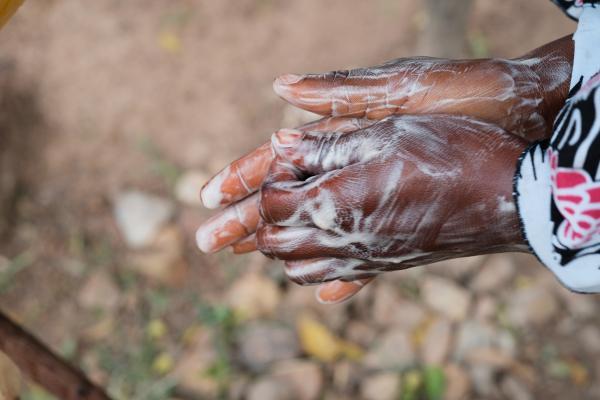How to protect yourself from Coronavirus in Ghana

Mfidie.com is here to educate you on how the virus spreads and how to keep yourself and those you love safe.
We are here to inform you about the latest coronavirus numbers in Ghana and most importantly how to keep yourself safe as a Ghanaian in the time of this pandemic.
For the latest updates on cases of Coronavirus in Ghana, click here.
Be sure to share this with as many people as you can.

How does Coronavirus spread?
- The virus is thought to spread mainly through person-to-person contact.
- Between people who are in close contact with one another (within about 6 feet).
- Through respiratory droplets produced when an infected person coughs or sneezes.
- These droplets can land in the mouths or noses of people who are nearby or possibly be inhaled into the lungs.
How to protect yourself against Coronavirus in Ghana
Here are the steps to take to protect yourself from Coronavirus in Ghana:
- Wear an approved face mask every time you are outside your home, and all the time if you feel sick.
- Wash your hands frequently
- Maintain social distancing
- Avoid touching eyes, nose and mouth
- Practice respiratory hygiene
- If you have fever, cough and difficulty breathing, seek medical care early
- Follow the directions of the Ghana Health Service
Now, let’s break it down
Wash your hands frequently.
Regularly and thoroughly clean your hands with an alcohol-based hand. Rub or wash them with soap and water.
Maintain social distancing
Maintain at least one metre (three feet) distance between yourself and anyone who is coughing or sneezing. When someone coughs or sneezes they spray small liquid droplets from their nose or mouth which may contain the virus. If you are too close, you can breathe in the droplets, including the COVID-19 virus if the person coughing has the disease
Avoid touching eyes, nose and mouth
Hands touch many surfaces and can pick up viruses. Once contaminated, hands can transfer the virus to your eyes, nose or mouth. From there, the virus can enter your body and can make you sick.
Practice respiratory hygiene
Make sure you and the people around you follow good respiratory hygiene. This means covering your mouth and nose with your bent elbow or tissue when you cough or sneeze. Then dispose of the used tissue immediately. Droplets spread the virus. By following good respiratory hygiene you protect the people around you from viruses such as cold, flu and COVID-19.
If you have fever, cough and difficulty breathing, seek medical care early
Stay home if you feel unwell. If you have a fever, cough and difficulty breathing, seek medical attention and call in advance.
In Ghana, the Coronavirus hotline numbers to call are: 0552222004, 0552222005, 0509497700 and 0558439868
Follow the directions of the Ghana Health Service
National and local authorities will have the most up to date information on the situation in your area. Calling in advance will allow your health care provider to quickly direct you to the right health facility. This will also protect you and help prevent the spread of viruses and other infections
Frequently Asked Questions about Coronavirus in Ghana
In Ghana, the Coronavirus hotline numbers to call are: 0552222004, 0552222005, 0509497700 and 0558439868
Coronavirus is thought to be spread by small drops of moisture we release when we sneeze or cough.
The moisture has to get into your body to make you sick, which means you can catch coronavirus if those droplets get into your eyes, nose or mouth.
The most common symptoms of coronavirus are fever, sore throat, dry cough and fatigue. Other symptoms can also include headaches, nasal congestion or a runny nose.
The best way to avoid catching coronavirus from touching a contaminated surface is to wash your hands properly and avoid touching your face.
Scientists are working on new technologies to try and develop a vaccine for COVID-19.
The World Health Organisation said the first vaccines targeting the disease could take 18 months to develop, which would mean August 2021.
